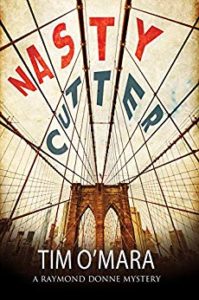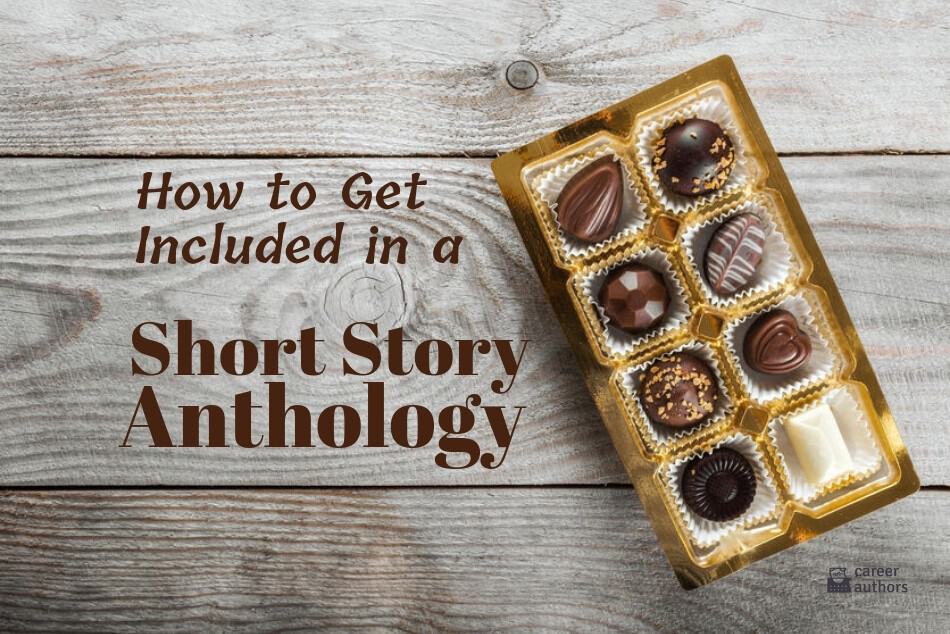by Tim O’Mara
To paraphrase the great literary scholar Forrest Gump, “An anthology is like a box of chocolates. You never know who you’re gonna get.”
We all have our favorite authors. We buy their novels, or—at the very least—borrow them from a friend or our local public library. When we see their names on a short story collection, they get our attention. In a perfect world, we’d pick up the anthology and recognize and admire every single writer. (See where I’m going with this?) I hate to be the one to break it to you, but this is not a perfect world.
In addition to our faves, there are names we’ve heard of but have never read, and quite often names we’ve never even heard of: the literary equivalent of Mr. Gump’s box of chocolates.
How did those little-known writers get into that anthology? Who the heck are they to be mixed in with the bestsellers—the chocolate nougats and caramels? And more importantly, how can you get your story into the next one?
Write a short story
Depending on what you write—novels, scripts, witty tweets—this may pose a bit of a challenge for you. And that’s okay. Short stories are one reason I don’t believe in writer’s block. When I’m struggling with my current work-in-progress, I often find that writing something completely different—and short—can help stimulate the novel part of my brain. Chances are good you’ve already got a germ of an idea in your head.
You are a writer after all. So start writing it.
Finish the story
Real-life advice: no one wants to hear you’re “working” on a story. Sorry, it’s just not that interesting. We’re all working on something.
Make the story flexible
A large number of anthologies have themes. The one I just edited and curated—Down to the River, Down & Out Books, April 2019—involves crimes stories that take place on or near rivers. Can your setting be changed? Can your lead female become a lead male? Can the race of your lead characters be changed? I’m not saying compromise your vision; I am saying you stand a better chance of getting your story published if your vision is not set in stone. (Or in this case, Read Only mode.)
The editor is your friend. The editor wants your story to be terrific. Listen to the editor.
Check for guidelines
Are you submitting to an anthology that has set guidelines for the contents? If it asks for short stories of a certain length, write that. Longer is not better. Shorter is not better. What they are asking for is better.
If there is a topic, write to that topic. Out of the topic box is not better. And (goes without saying, you’d think) later than the stated deadline is not better.
Join the club
Mystery Writers of America, International Thriller Writers, Sisters in Crime, Crime (or Horror, Romance, Science Fiction) Writers of America. Trust me: the folks who are editing anthologies are not just looking for established writers. We’re actively out there looking for new voices to share with the reading public. So get out there. One of the biggest thrills in curating Down to the River was meeting folks—at conferences, readings, book events—I’d never heard of and then getting blown away by their submissions.
I have a rule that served me well during this process: if a writer is confident enough to say, “I think I have a story for you,” most times that story is good, or at the very least, editable.
So you’re not chocolate nougat or a caramel. Most of us aren’t. But if you’re not writing and finishing a story, not flexible, and not leaving your writing safe space, you’re never going to get into that box of chocolates.
And that’s a shame. Because you just might be the new flavor readers have been looking for.
Do you have questions about anthologies? Let’s talk about it on the Career Authors Facebook page.

 Tim O’Mara lives with his family in Manhattan, where he currently teaches an ongoing writing workshop and writes full-time, having retired in June 2017 from a 30-year career as a New York City public middle school special education teacher. He is a proud member of New York Writers Workshop, Mystery Writers of America, PEN America, and Irish American Writers & Artists.
Tim O’Mara lives with his family in Manhattan, where he currently teaches an ongoing writing workshop and writes full-time, having retired in June 2017 from a 30-year career as a New York City public middle school special education teacher. He is a proud member of New York Writers Workshop, Mystery Writers of America, PEN America, and Irish American Writers & Artists.





